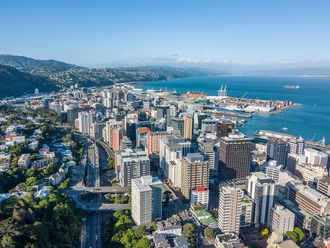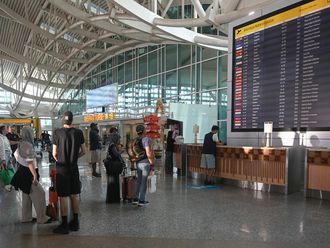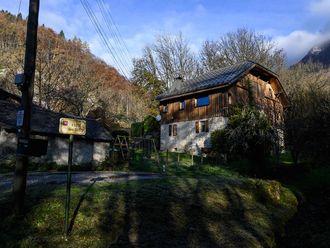Seoul: North Korea warned the US and South Korea yesterday of deadly consequences for engaging in "psychological warfare" by allowing journalists into the heavily fortified Demilitarised Zone dividing the two Koreas.
The stern statement was the first from North Korea's military since a South Korean naval ship sank in the tense waters near the Koreas' maritime border under unclear circumstances.
It made no mention of the ship, submerged off the South Korean island of Baengnyeong as the mission to rescue 46 missing seamen continued.
The area, just south of the disputed sea border, has been the site of three bloody skirmishes between the foes. However, South Korean and US officials say nothing suggests North Korean involvement in Saturday's sinking.
The exact cause of the explosion that tore a hole into the Cheonan and split it apart may not be clear until the ship is salvaged after the rescue operation, the Joint Chiefs of Staff said.
Yesterday, a spokesman for the Korean People's Army accused South Korea of engaging in "psychological warfare" inside the DMZ, saying that allowing journalists into the zone violates the armistice agreement signed in 1953.
The two Koreas remain in a state of war because they have never signed a formal peace treaty.
Hundreds of thousands of troops on both sides guard the 4-kilometre-wide DMZ. Security is tight and special permission is required to enter.
Journalists and foreign tourists are allowed to visit the truce village of Panmunjom. South Korea's Defence Ministry, however, has allowed some media organisations to enter the DMZ this year.
Unpredictable incidents
"If the US and the South Korean authorities persist in their wrong acts to misuse the DMZ for the inter-Korean confrontation despite our warnings, these will entail unpredictable incidents including the loss of human lives in this area for which the US side will be wholly to blame," North Korea's military warned in a statement carried by the state-run Korean Central News Agency.
North Korea routinely issues such warnings to South Korea and the US, which has 28,500 troops in the country. On Friday morning, the military warned of "unprecedented nuclear strikes" if the foes sought to destabilise the communist nation.
The threats have been more frequent since the US and South Korea embarked on routine joint military drills taking place in March and April.
North Korea cites the US troops' presence on South Korean soil as a reason for building up its nuclear weapons programme.












